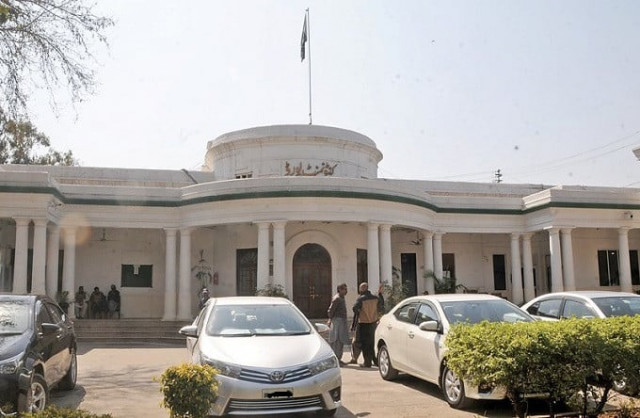Post-amendment : Cantts allowed to use surplus lands
Changes empower boards to impose fees for services, taxes on advertising

The Cantonment Act 2023 has come into effect across the country including the Rawalpindi and Chaklala cantonments boards and has broadened their jurisdiction, allowing them to utilise surplus land for commercial, residential, and other purposes.
The Cantonment Act 1924, imposed during the British colonial era nearly a century ago, was done away with by the government of India soon after independence from British rule, however, it took Pakistan 76 years to do so. The jurisdiction of the cantonment board has been expanded through an amendment to Section 2 of the Cantonment Act 1924.
Under the provisions of the Cantonment Act 2023, a Directorate of Military Land and Cantonment is set to be established. This body will oversee the administration of cantonment boards and military land nationwide.
The headquarters of this directorate will be established in Rawalpindi or Islamabad, and regional offices are also slated to be established across the country.
Notably, a major general from the Pakistan Army will serve as the director general of the Directorate General of Military Land and Cantonment for a two-year term, which may be extended by the federal government.
The Cantonment Act 2023 will govern the operations of 62 cantonment boards throughout the country.
Among them, 27 are located in Punjab, 10 in Khyber Pakhtunkhwa, 7 in Baluchistan, 2 in Gilgit-Baltistan, and 13 in the Sindh province.
An amendment introduced to Section 2 of the act expands the powers of the boards, enabling them to impose taxes on various forms of advertising within the cantonment limits, encompassing signboards, illuminated signs, posters, and more.
Additionally, cantonment boards across Pakistan now possess the authority to impose varying fees for different services and activities.
Moreover, amendments delegate district magistrate powers to the secretary-general of the Military Lands and Cantonments.
The revised Act exempts places of worship, charitable educational institutions, libraries, sports grounds, and rest houses from taxation within cantonment limits.
Regarding penalties, the fine for individuals involved in the illegal sale of liquor within the cantonment limits has been raised from Rs100 to Rs1,000.
Those found guilty will also be subject to a three-month imprisonment. Similarly, the fine for storing liquor bottles within the cantonment boundaries has been elevated from Rs50 to Rs1,000, accompanied by a three-month imprisonment term.
The implementation of new taxes, rate increases, or fees within the cantonment boundaries now involves a mandatory public notice through newspapers during the initial stage.
The public is granted a 30-day period to raise objections. An amendment to section 64 of the Cantonment Act has revoked the provision that permitted the addition of extra costs to the valuation of properties such as railway stations, hotels, colleges, schools, or factories upon the expiration of their leases.
In the context of property-related matters, citizens who wish to demolish their buildings must obtain permission from the board. Failure to obtain permission will incur a penalty of up to Rs1,000.
In instances where individuals fail to pay various taxes, including property tax, within the established timeframe of the cantonment boards, the boards have been authorised to impose a late payment surcharge equivalent to 1% of the tax value per month.
Under section 92 of the Cantonment Act, following a 30-day period from the issuance of notices to individuals within the cantonment limits for payment of taxes, tolls, fees, or other dues, the executive officer is empowered to issue warrants, collect outstanding dues, effect arrests and recovery, take possession of properties, sell properties, and take such properties into the custody of the boards.
Published in The Express Tribune, August 21st, 2023.



















COMMENTS
Comments are moderated and generally will be posted if they are on-topic and not abusive.
For more information, please see our Comments FAQ